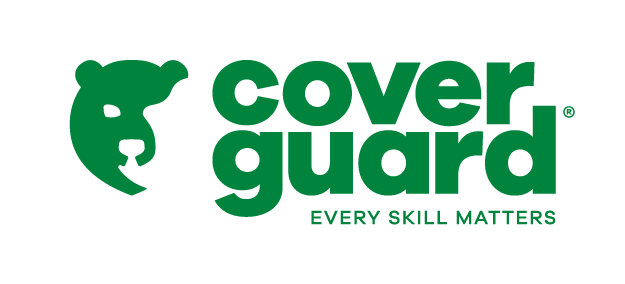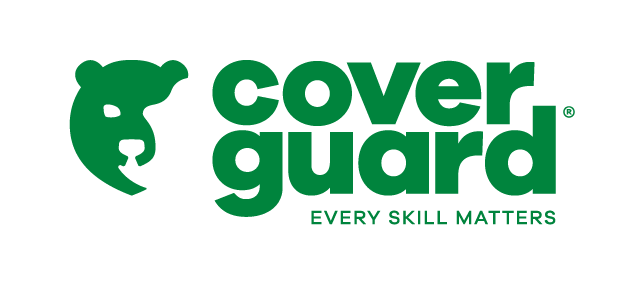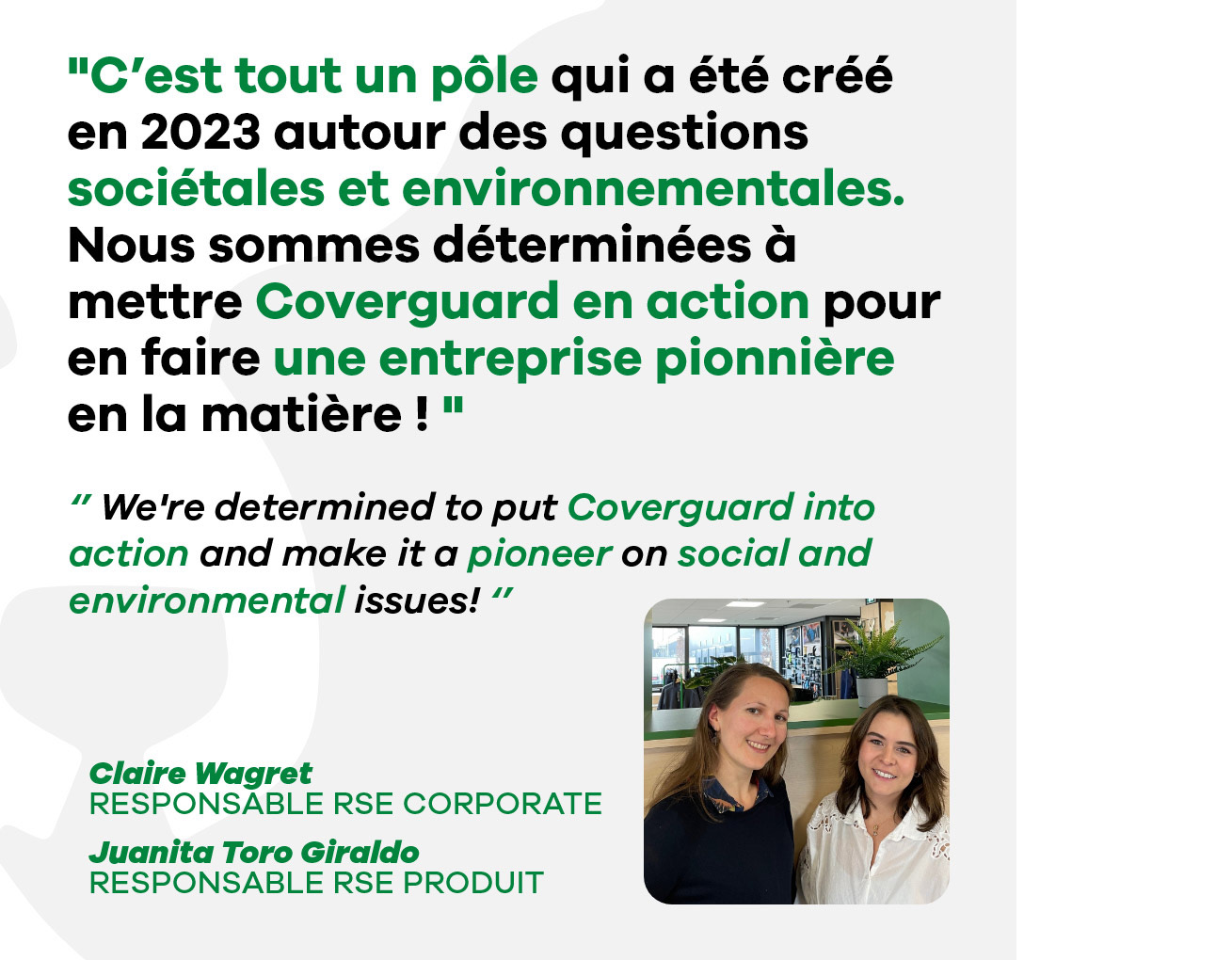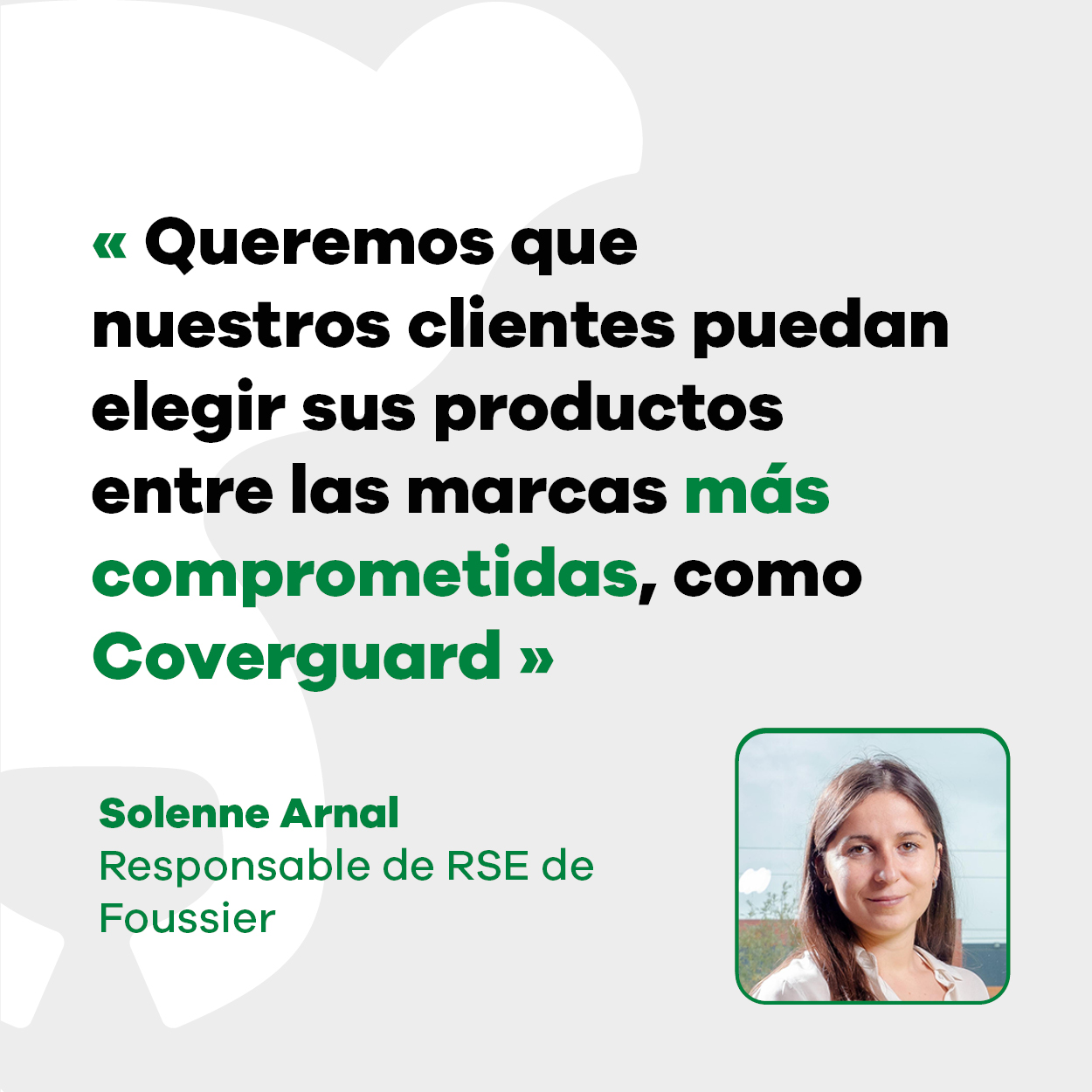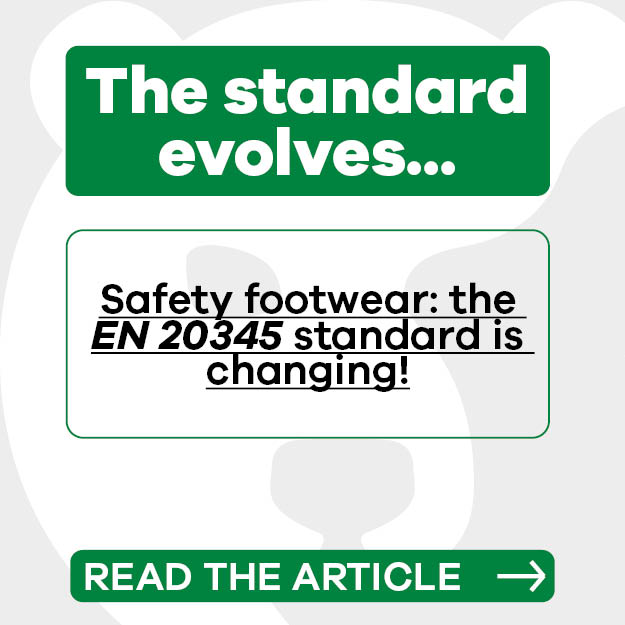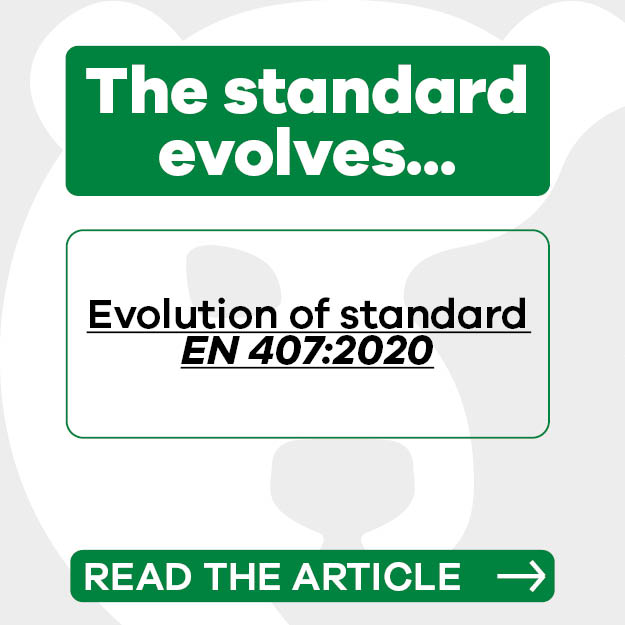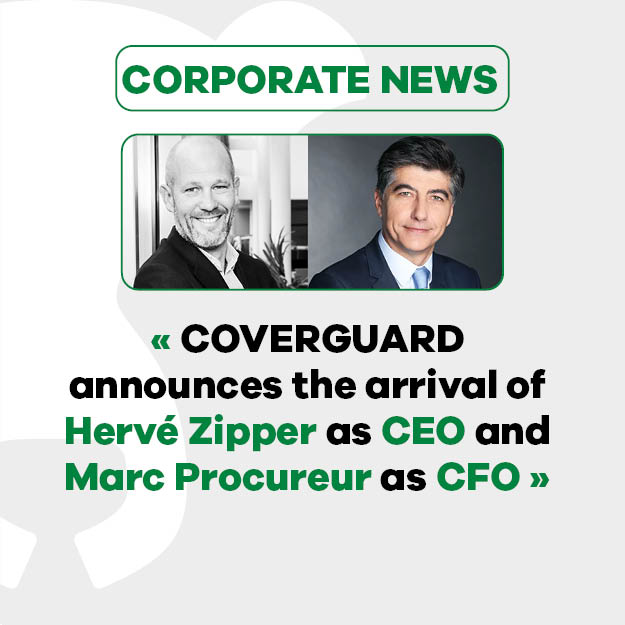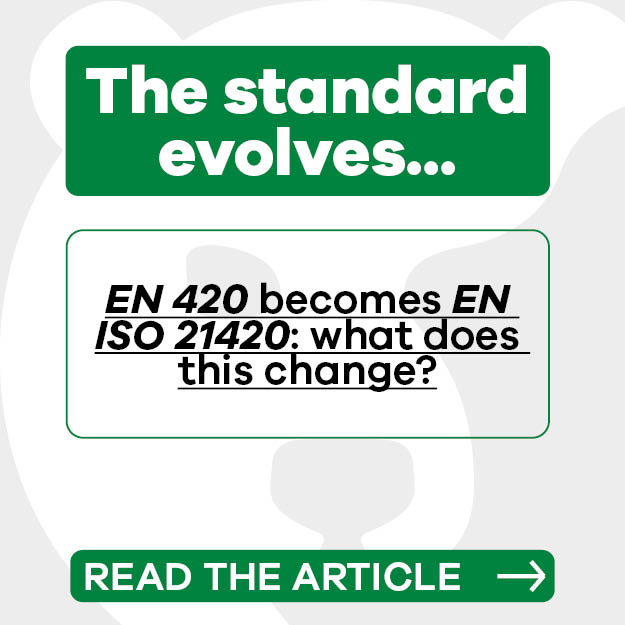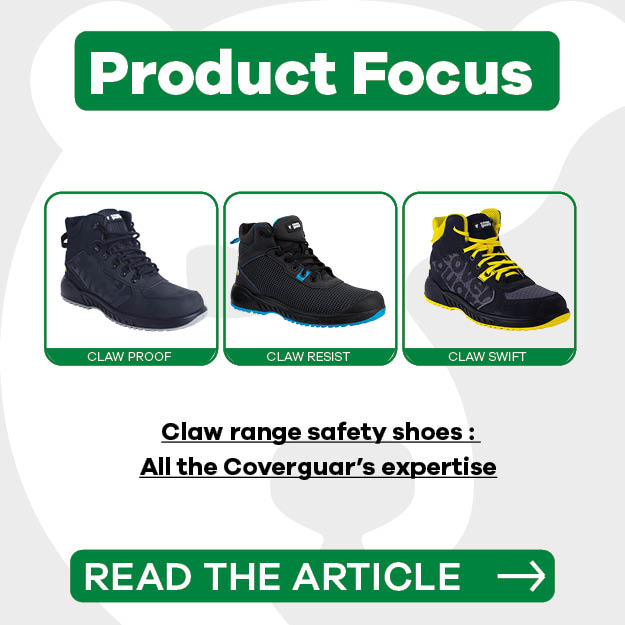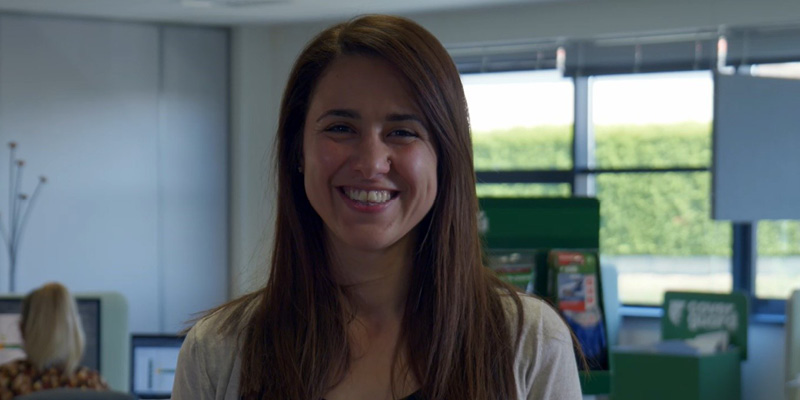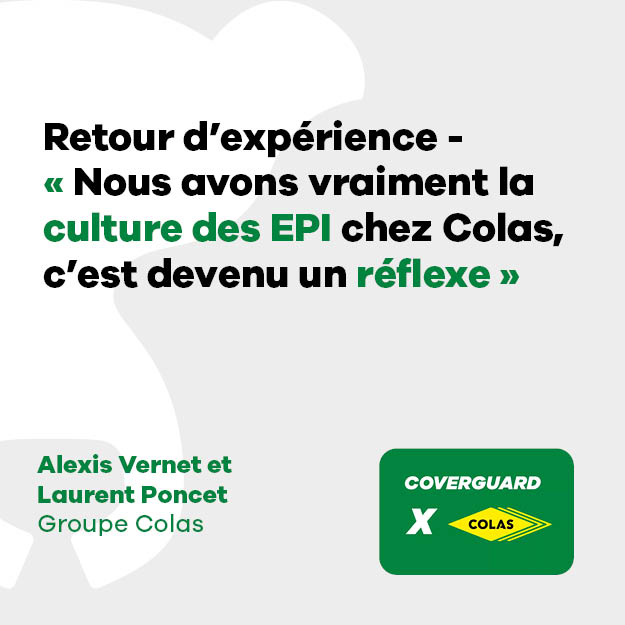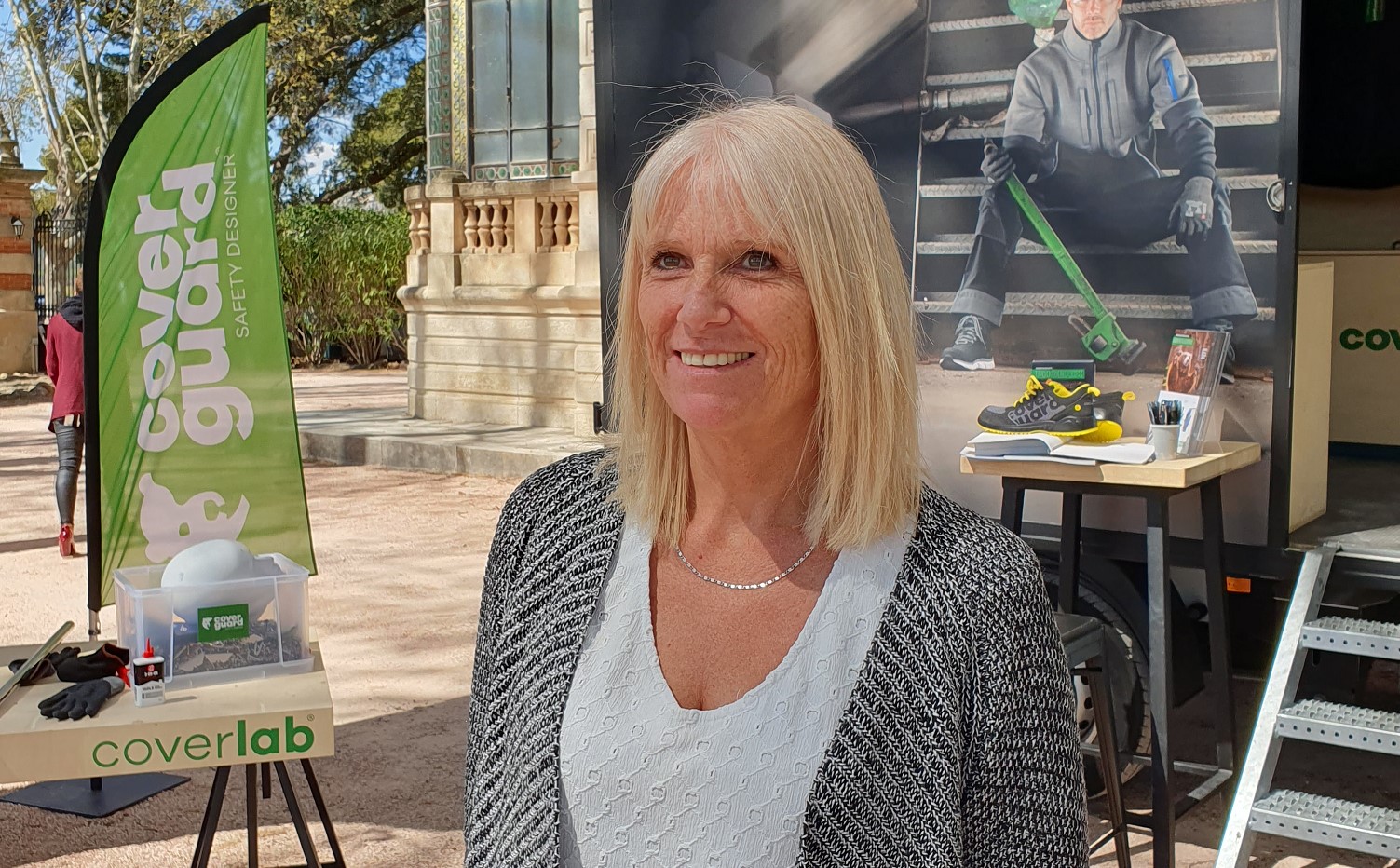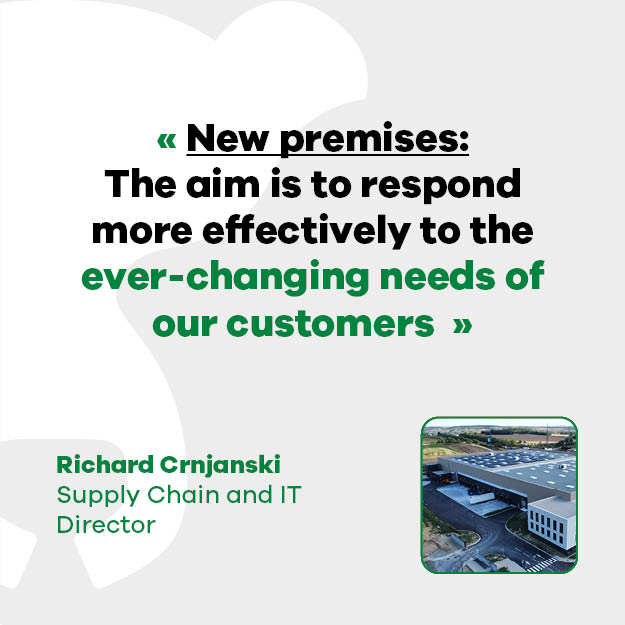
Solenne Arnal, CSR Manager at Foussier “We want to allow our customers to choose their products from among the most committed brands, like Coverguard”.
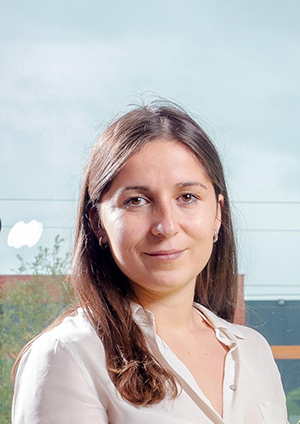
How to recognize an eco-responsible product ? Foussier, the national distributor for the building industry, is keen to guide its customers through the 60,000 products on its website, and has set up a responsible purchasing initiative. The aim is to highlight the products with the lowest impact and the most committed brands. Two products from our new Work'R eco-conscious range are among them! These distinctions reward the policy pursued by all Coverguard teams and the environmental dynamic set in motion in 2019.
Solenne Arnal, CSR Manager at Foussier, talks about the importance of this collective approach within the industry and the partnership of trust that unites our 2 brands.
Since your arrival at Foussier in 2023, you have been determined to implement a responsible purchasing policy. Tell us about it!
Solenne Arnal: As a distributor, this approach is a real commitment. It allows us to be transparent about the level of CSR performance of the brands we sell and the level of eco-responsibility of their products. Our aim is twofold: to enable our customers to choose from among the most committed brands, and to enable our manufacturers to compete on these aspects. By communicating the CSR performance levels of our brands on our website, we place them in a dynamic of continuous improvement. We have chosen to evaluate key manufacturers as a priority. There are 200 of them, and Coverguard is one of the top 3.
What CSR manufacturer rating did you give us?
Solenne Arnal: At Foussier, Coverguard scores 69/100. This corresponds to a B++ level, bordering on A, for which a score of 71/100 is required. This is the result of lengthy discussions with your teams to understand your CSR commitments and have a fairly clear view of your performance, thanks in particular to the official labels and ratings you are awarded elsewhere. Coverguard is one of the top-performing brands in our catalog.
“We select suppliers who promote good ethical, human rights and environmental practices”.
You have also awarded two products from our new Work'R eco-designed range with an eco-responsibility index. What does this mean?
Solenne Arnal: For us, an eco-responsible product is one that has less impact not only on the environment, but also on the health and safety of users. We take 4 criteria into account: the eco-design of the product, and we value those that contain recycled materials; the social responsibility of the company and responsible manufacturing, by selecting those that promote good ethical practices, human rights and respect for the environment; and finally, we take an interest in local manufacturing to value the steps taken to reduce or improve impact. Our index ranges from level 1, for a start in eco-design efforts, to level 3 for a totally eco-designed product.
Our HV Nebulo softshell jacket was awarded level 2 in your assessment...
Solenne Arnal: Indeed, the manufacturing plant has ISO 14 001 certification, which proves that the site has a certified environmental approach and is committed to continuous improvement of its environmental impact. The factory is also GRS-certified, attesting to the traceability of its recycled materials, and SMETA 4-certified, proving that it respects human rights in its operations with genuinely secure social aspects. What's more, with the Nebulo HV softshell jacket, we have a product made from 100% recycled and recyclable raw materials, and packaging made from 50% recycled materials. The product is also GRS-labeled, attesting to this percentage of recycled raw materials.
What about the Banjo softshell jacket?
Solenne Arnal: The Banjo jacket offers much the same performance, with the addition of a Life Cycle Analysis that underlines your commitment to transparency and in-depth understanding of the product's environmental impact. It therefore achieves level 3, the highest level.
“With Coverguard, we're moving in the same direction in terms of CSR”.
How do you assess the maturity of the finishing market in terms of this type of indicator?
Solenne Arnal: Today, the eco-responsible nature of products is clearly part of our customers' selection criteria. So it's extremely important for us to offer certified ranges and, above all, to develop partnerships with manufacturers like Coverguard, who are initiating this approach in the manufacture of their PPE. When it comes to sustainable development, it's essential that we move forward together with our customers and manufacturers.
It's a virtuous circle for the entire industry!
Solenne Arnal: Yes, if the entire value chain is involved, all players will succeed in reducing their impact. It's important to get our customers on board by explaining that they need to step up their responsible purchasing and that it's by changing their purchasing practices that we'll be able to change ours. And on the manufacturer side, we won't be able to meet customer demands and reduce our impact if they don't get on board with us either. Today, we know that 72% of our carbon impact comes from the manufacture of the products we sell, and 9% from the end-of-life of these products.
Coverguard's work on these issues is very interesting, and offers significant avenues for progress. We also appreciate the fact that you are perfectly transparent about what you know how to do and where there is still room for improvement. We have clear visibility and are moving forward hand in hand. This is essential.







